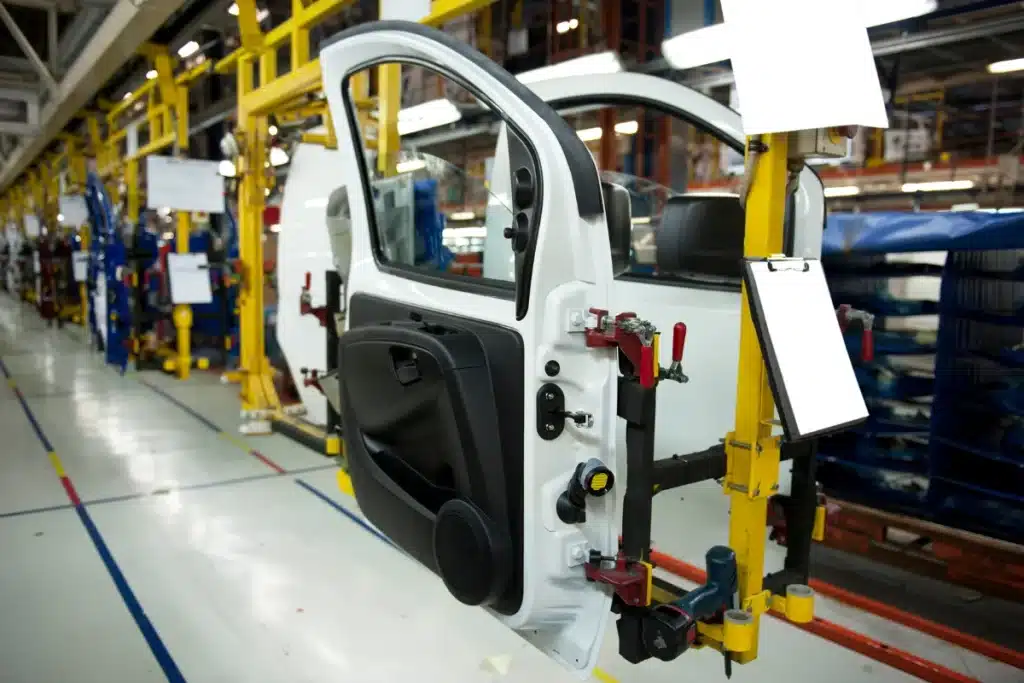As online businesses are flourishing and brick-and-mortar retailers are becoming less common, Commerce Cloud and ERP e-commerce functionality is becoming more relevant than ever. By integrating your e-commerce platform with an ERP solution, you can increase productivity, retain current customers and reach new ones, boost revenue, and more!
In this article, we’ll take a closer look at the benefits of integrating your e-commerce platform with ERP, essential features, and how to choose the best solution for you.
Benefits of an ERP Solution
There are many benefits associated with successfully implementing an ERP solution with your e-commerce platform. Since operations are typically conducted quickly and at a high volume, it’s crucial to have a solution with automation capabilities and tie-ins to financial info. Following are some of the perks that your e-commerce business should look for when integrating your platform with an ERP solution.
Consolidation of Sales
One of the primary benefits of integrating an ERP system with your e-commerce platform is centralizing sales info from various areas. This is critical, especially if your company offers multiple touchpoints: online, brick-and-mortar locations, catalogs, and the like.
It can be hard to organize your sales info when you have several platforms. ERPs pull the information into one location to make it easier to mine and develop insights. After all, to ensure the accuracy of an automated system, you need to include all relevant data points.
For example, suppose you don’t consider the needs of your brick-and-mortar locations when you’re forecasting your material needs. In that case, you’ll end up running short on products and not meeting customer demand. Potential revenue could be lost.
Productivity is Increased
ERP connects your various workflows and automates information exchange, increasing operational productivity. In some cases, key functions can be automated, such as sending shipping notifications and bank reconciliations. When productivity goes up, you can increase output because you can conduct more operations in the same amount of time. It also allows you to optimize your workflows, which means you spend less time spot-checking documents and correcting human errors.
Increases Revenue
Every business is always trying to find new ways to increase revenue. There are several ways an ERP solution can help increase profit from implicit benefits related to automation and increased productivity to actual cash in hand and more. For example, the automation of specific business functions frees employees to spend time on other tasks. One study by Nucleus Research indicated that the average dollar amount earned for every $1 spent on an ERP is $7.23. Therefore, it’s clear that successful integration of an ERP system leads to revenue benefits that often outweigh the implementation cost.
Improves Customer Relationships
In any business, customer relationships should be a priority. Most ERP systems offer Customer Relationship Management functionality either out-of-the-box or as an add-on. When you have CRM capability, your e-commerce company will have a central source of customer info, which allows your customer service reps to tailor sales leads based on previous sales, demographics, and more. There is enormous potential in e-commerce. One study revealed that, on average, Americans spend 36% of their shopping budget online. This portends trend growth as e-commerce and tech prosper.
Many ERP programs automate tracking and send notifications when a product has reached its destination. When you streamline these processes, you create a positive impression in the minds of your customers, which ultimately leads to a higher customer retention rate.
Visualization & Management of Process
When considering various ERP e-commerce options, process and project visualization are critical. Often, you will find that ERP solutions offer customizable dashboards that contain information related to labor allocation, project status, finances, and more. When it’s easier to access and understand these insights, business owners can pinpoint any bottlenecks and make decisions to improve the process.
Features to Consider in an ERP Solution
It’s important to note that various ERP vendors offer different features. Some functions are more critical for e-commerce than others. In most cases, Commerce Cloud contains all the features you need. Here are a few that you should keep in mind:
CRM
As we mentioned, customer relationship management (CRM) is vital for every business, but for e-commerce companies, it is especially critical. There is a wide variety of e-commerce companies that consumers can choose from when shopping online. With that said, good CRM software can help cultivate leads that keep customers coming back. Customer retention is critical because, according to Forrester, it costs 5 times as much to find and recruit new customers as it does to retain your existing ones.
Customers say the things that keep them coming back include an online help desk, efficient shipping notifications, and tailored advertisements.
For example, let’s say you’re shopping for a scarf. Do you choose Amazon, whom you know you can depend on, or an independent retailer that has the scarf you want [or even one you like better] but doesn’t give you quality information about shipping? In this case, most people would select Amazon because they have a dedicated delivery schedule and a positive reputation.
In addition, many customers prefer companies with customer service options that are easy to access. For example, if they need to make a return, it’s much easier for the customer to click a button to access a representative instead of going through a phone chain to try to get a live person. Consider your preferences as a consumer and try to meet those standards in your business to increase customer retention.
Financial Information
If you cannot access real-time, efficient financial data, you’re operating in a vacuum. At the core of an ERP solution is your data. To centralize your processes and develop efficient forecasting models, you need to access your financial information. With this, you can plan for your material reorders and anticipate your delivery lead times. You can also leverage this info to choose vendors to work with and follow up with any customers who still have a balance with you.
Ultimately, managing finances is a critical part of an ERP solution for any business. Suppose you are already using accounting software for your e-commerce company. In that case, you may want to think about integrating it with ERP e-commerce functionality to ensure that information is specialized and insights are transparent across departments.
Management of Inventory
When it comes to an e-commerce business, one of the essential features of an ERP system is inventory management. There are two areas where e-commerce is different from brick-and-mortar locations: volume of sales and variety of products. Therefore, it’s much easier to make mistakes with an e-commerce business than with a brick-and-mortar business.
Where features/functions of ERP are concerned, order management and inventory management are critical. After all, inventory levels must be accurate if you expect to fulfill a customer’s order in a timely fashion. In an e-commerce environment, speed and accuracy are critical, so it’s imperative to the success of your e-commerce business to have the real-time info that an ERP system can provide.
Shipping & Distribution
Many e-commerce companies utilize dropshipping. Dropshipping is a process by which a company sells a product they order from a third-party vendor, who ships directly to the customer. E-commerce businesses can offer various items without needing to house large inventory or maintain a vast warehouse.
The truth is that everything involves delivery. Therefore, if you want to see how your fulfillment workflow is working, you need ERP software. For example, you’ll want to know if a newly implemented program makes the ordering and shipping process more straightforward or not.
You’ll also want to look for tracking functionality—many of the ERP systems partner with carriers such as FedEx or UPS.
Moving Forward
As we move into the future, it’s necessary to expect that integrating ERP with e-commerce will be required. One study from the US Commerce Department revealed that the total market share of online sales was higher than general merchandise for the first time in 2019. Indicating people are choosing to go online to make their purchases more often. Yes, there are still purchases that require an in-person experience and must occur at brick-and-mortar locations. However, as technology advances, users become more comfortable making large purchases online.
A report from Shopify has estimated that global e-commerce sales will reach $5.5 trillion in 2022. Two years ago, in 2020, approximately 17.8% of sales were online. In 2022, this is expected to reach 21%, which is a significant increase. By 2025, online sales are forecasted to hit 24.5%—a 6.7% increase in just five years.
Is your business ready for the forecasted boost of online sales? Consider pairing Commerce Cloud with GoldFinch ERP—solutions designed to help you as your e-commerce business grows and moves into the future. Schedule a demo now.



